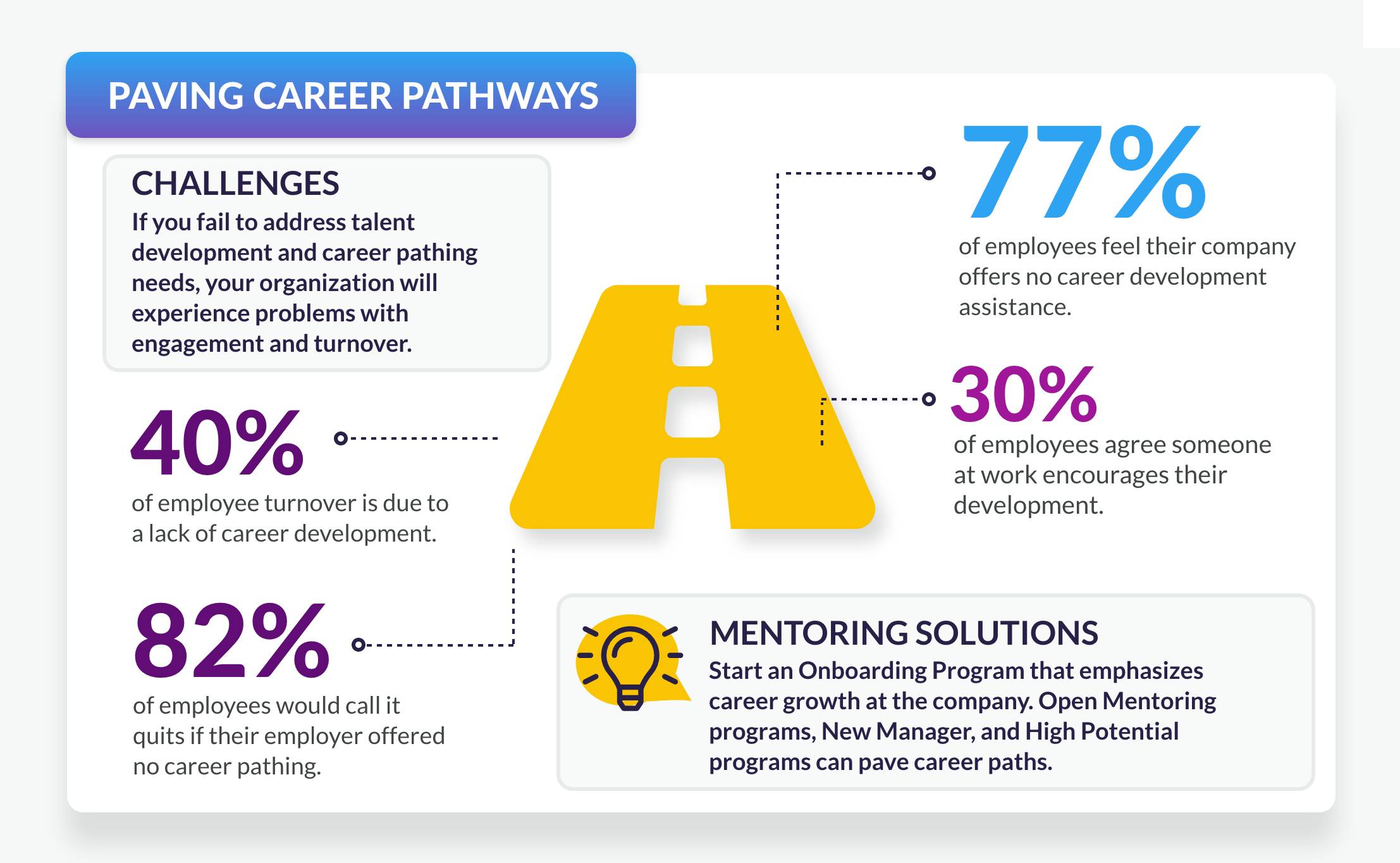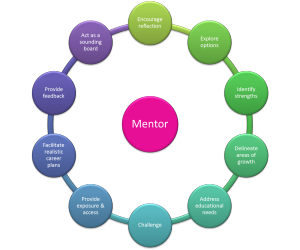Mentorship for Career Growth: Unlocking Your Potential

In today’s competitive professional landscape, career advancement often depends on more than just skill and expertise. Mentorship is one of the most powerful tools available for personal and professional growth. It provides guidance, support, and invaluable insights from experienced professionals who can help navigate the complexities of the modern workplace.
In this article, we will explore why mentorship is essential for career growth, how to find the right mentor, and how both mentees and mentors can benefit from a successful mentoring relationship.
What is Mentorship?
Mentorship is a professional relationship in which an experienced individual (the mentor) provides guidance, advice, and support to a less experienced person (the mentee). This relationship is built on trust, respect, and the mentor’s willingness to share their knowledge to help the mentee reach their career goals. Mentorship is different from coaching or training in that it focuses on personal development, goal setting, and providing emotional and strategic support.
Mentorship can take many forms, including:
- One-on-one mentorship: A direct and personal relationship between a mentor and a mentee.
- Group mentorship: A mentor works with multiple mentees, often in a shared environment or forum.
- Peer mentorship: Colleagues at similar levels exchange advice and support.
- Reverse mentorship: A younger or less experienced individual provides insights to a more senior professional.

Why is Mentorship Important for Career Growth?
Mentorship plays a crucial role in accelerating career growth. Whether you are just starting out or are an experienced professional looking to take your career to the next level, mentorship offers several key benefits:
1. Skill Development and Knowledge Transfer
One of the primary benefits of mentorship is the opportunity to gain new skills and knowledge. A mentor shares their experience, insights, and expertise to help the mentee learn faster and avoid common mistakes. This knowledge transfer can encompass a wide range of areas, such as leadership, decision-making, problem-solving, and specific technical skills.
2. Networking Opportunities
Mentors often introduce their mentees to key industry connections. Through these connections, mentees can access new career opportunities, collaborations, and professional networks that they might not have had access to otherwise. Building a strong professional network is essential for career advancement, and mentorship often acts as a gateway to these networks.
3. Increased Confidence
Having a mentor can significantly boost a mentee’s confidence. A mentor provides encouragement, helps the mentee set realistic goals, and provides constructive feedback, all of which contribute to a more confident and empowered professional. This increased confidence enables mentees to take on new challenges, speak up in meetings, and pursue opportunities that they might have previously hesitated to explore.
4. Personal and Professional Accountability
A mentor helps a mentee set clear, achievable goals and holds them accountable for progress. This accountability helps keep the mentee focused on their career growth, ensuring they take actionable steps toward their professional objectives.
5. Strategic Career Guidance
Mentors provide strategic insights that are often based on years of experience. They help mentees navigate complex career decisions, such as whether to accept a job offer, how to handle workplace challenges, or how to position themselves for a promotion. With their guidance, mentees are more likely to make informed decisions that lead to long-term success.
How to Find the Right Mentor for Career Growth
The process of finding a mentor requires intentionality and thoughtfulness. Here are some key steps to finding a mentor who can effectively guide your career growth:
1. Identify Your Goals
Before seeking a mentor, take time to reflect on your career goals. Ask yourself:
- What specific skills or knowledge do I want to gain?
- What type of career path am I looking to pursue?
- Do I want someone with experience in a particular industry or function?
By understanding your goals, you can better identify a mentor whose expertise aligns with your aspirations.
2. Look for a Mentor Who Shares Your Values
It’s essential to find someone whose values, work ethic, and approach to career development resonate with you. A mentor-mentee relationship is built on trust, so it’s important that you feel comfortable sharing your goals and challenges with them.
3. Seek a Mentor Who Challenges You
The best mentors are those who can push you outside of your comfort zone, offer constructive feedback, and challenge your assumptions. Seek a mentor who will help you grow not just by giving advice but by encouraging you to think critically and step up to new challenges.
4. Consider Formal and Informal Mentoring Relationships
Mentorship can come in both formal and informal arrangements. Formal mentorship might involve a structured program through your employer, professional organizations, or mentorship platforms. Informal mentorship, on the other hand, can arise organically through networking events, conferences, or through mutual professional connections. Both types can be equally valuable, depending on your needs.
5. Use Mentorship Platforms and Networks
There are several online platforms dedicated to connecting mentors with mentees, such as MentorcliQ and LinkedIn’s career advice feature. These platforms can help you find potential mentors who are eager to offer support and advice.
How to Build a Strong Mentorship Relationship
Once you’ve found a mentor, building a strong, effective relationship requires commitment from both sides. Here are some tips for mentees to get the most out of their mentorship:
1. Set Clear Expectations
From the outset, set clear expectations for the mentorship relationship. Discuss how often you will meet, the format of those meetings, and the specific areas you want to focus on. Clear expectations ensure that both parties are on the same page and can make the relationship more productive.
2. Be Open to Feedback
A successful mentorship relationship requires the mentee to be open to constructive criticism and feedback. While it might be difficult at times, remember that feedback is given to help you grow. Take it as an opportunity to learn and improve.
3. Be Proactive
Don’t wait for your mentor to reach out to you. Take the initiative in scheduling meetings, setting goals, and asking questions. Being proactive demonstrates your commitment to growth and maximizes the value you get from the relationship.
4. Maintain Consistency
Mentorship is most effective when it is ongoing. Keep a regular schedule for check-ins and keep your mentor updated on your progress. This consistency helps reinforce the mentor-mentee bond and keeps you on track toward your career goals.
5. Show Gratitude
Mentorship is a two-way relationship that requires mutual respect. Be sure to express your gratitude for your mentor’s time, advice, and support. A simple thank-you goes a long way in maintaining a positive, long-lasting mentorship relationship.

Mentorship Trends in 2023
Mentorship is evolving as new technologies and work trends emerge. Here are some of the top mentorship trends to watch in 2023:
- Virtual Mentorship: With the rise of remote work, virtual mentorship has become increasingly popular. Virtual platforms allow mentors and mentees to connect regardless of geographical location.
- Diversity and Inclusion: Companies are focusing more on diverse mentorship programs that foster inclusive work cultures. Mentors are being trained to understand cultural differences and support a variety of perspectives.
- Reverse Mentoring: More organizations are adopting reverse mentoring, where younger or less experienced individuals mentor senior professionals. This helps organizations bridge generational gaps and embrace new perspectives.
- Data-Driven Mentorship: Companies are leveraging data and AI to match mentors and mentees more effectively based on skills, goals, and personality types.
FAQs About Mentorship for Career Growth
1. What is the best way to approach a mentor?
The best way to approach a mentor is by clearly explaining why you admire their work and how you believe their guidance could help you achieve your goals. Be respectful of their time, and express what you hope to gain from the mentorship relationship.
2. How long does mentorship typically last?
The length of a mentorship relationship can vary depending on the needs of the mentee and the availability of the mentor. Some mentorships last for a few months, while others may continue for several years. The key is to maintain open communication and adjust the duration based on the growth and progress of the mentee.
3. What are the benefits of being a mentor?
Mentoring others helps mentors refine their leadership and communication skills, gain new perspectives, and feel a sense of fulfillment by contributing to someone else’s success. It can also strengthen their professional network.
Conclusion
Mentorship is one of the most powerful tools for career growth. It provides opportunities to develop new skills, expand professional networks, and receive guidance from seasoned experts. Whether you are seeking a mentor or aiming to become one, mentorship can play a pivotal role in unlocking your potential and achieving lasting career success.
By committing to a mentorship relationship—whether as a mentee or a mentor—you are investing in not just your personal development, but the future success of your entire professional community.

